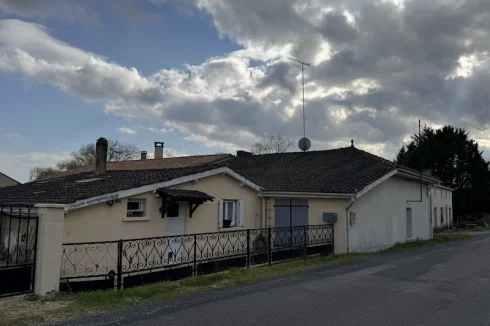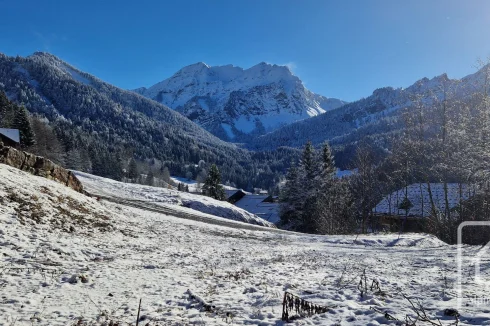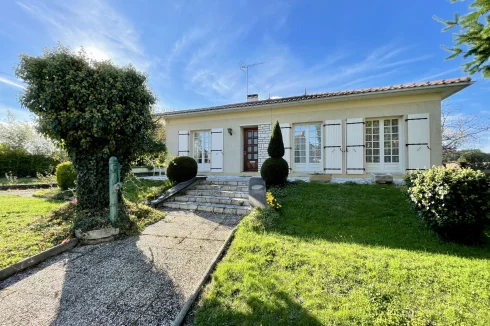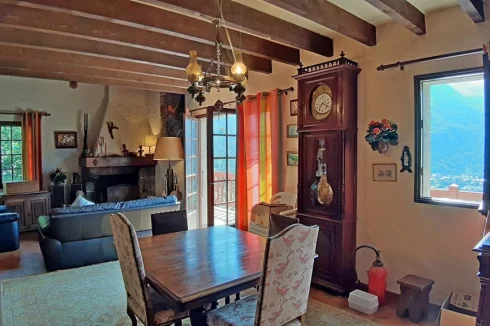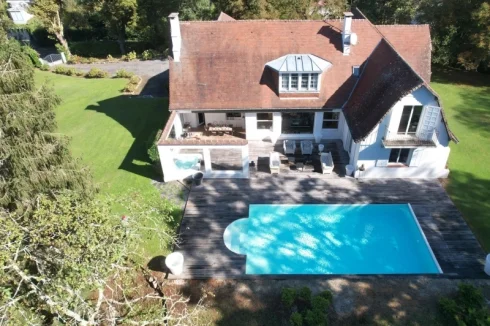France in Court Over Water Pollution
Tuesday 06 March 2012
The European Commission is taking the French government to the EU Court of Justice for failing to fully implement laws on nitrates.
“Although the Nitrates Directive has been in force since 1991, France has still not designated a number of zones that are vulnerable to nitrates pollution, and it has yet to adopt measures to effectively combat nitrates pollution in these zones,” the Commission stated.
The EU’s Directive is intended to reduce contamination of the EU’s waterways with fertilizer run-offs.
“These (areas) must include closed periods when manure and chemical fertilizers cannot be spread, a capacity for storing manure when it cannot be spread, and limitations on fertilizer application,” the EU explained.
Since 2001 there have been several judgements in the European Court of Justice condemning France for excessive levels of nitrate pollution in drinking water in Brittany, caused primarily by intensive livestock farming.
Nitrates are essential for plants to grow, and they are widely used as fertilisers, but excess levels cause severe water pollution.
The aim of the Nitrates Directive is to protect water quality by preventing nitrates from polluting ground and surface waters and by promoting the use of good farming practices.
Although agricultural pollution is not the only cause of nitrates in water, a report from the French government itself considers that 66% of nitrate pollution is due to agricultural practices, with only 12% due from industry and 22% from waste disposal activities.
Pig Farms Brittany
The decision of the French government last year to relax planning controls on the size of pig farms and on the use of spraying will have undoubtedly increased the wrath of the EU over this issue.
The problem is most serious in Brittany, the regional capital for pig breeding in France, with 8,000 pig farms accounting for 58% of the production in the country.
It is the intensive farming methods of the pig breeders that is said to be the cause of excessive levels of nitrate groundwater pollution, itself the source of the proliferation of toxic green algae on the coastline in Brittany.
Numerous beaches in Brittany are closed on a temporary or permanent basis due to the health risks caused by decomposing algae in a dry state, which is said to produce hydrogen sulphide, toxic fumes that can have mortal consequences.
In recent years there have been several allegations of illness and even deaths caused by the fumes from algae.
These allegations reached a crescendo in 2009 when the fumes are alleged to have been the cause of the death of a horse and an illness of the rider on the beach at Saint-Michel-en-Grève, near to Lannion in the Côtes-d'Armor.
They are also alleged in 2010 to have been the cause of the death of a lorry driver who was removing algae from the bay at Binic to a treatment station.
As well as the political fall out of these deaths, legal pressure from the EU over the issue has also been mounting on the government.
The French courts have also joined in on the censures, with the court of appeal in Nantes in December 2007 finding the government guilty of a laxest approach to the control of green algae.
Last year, a devastating leaked report from the préfet in the Côtes-d'Armor unambiguously attributed the cause of the green algae to the problem of agricultural effluent and fertilisers used in crop production, claiming that the regulatory framework was simply not strong enough.
He concluded by stating that '‘the visible reduction of this phenomenon cannot be achieved without a profound change in agricultural practice.''
This would include a major reduction in the amount of pig slurry that was spread onto the fields, and which later then runs into the rivers and ultimately causes green algae on the beaches.
Bruno Le Maire, the Minister of Agriculture, last year defended the pig producers, who he stated had made ‘''considerable efforts'' to improving their practices.
He omitted to mention that most of the bill for cleaning up the pollution is being picked up by the taxpayer. Although France has adopted the principle of ‘polluter pays’, it is not one that seems to apply to French farmers.
Ten of millions of Euros from the French Exchequer have been spent on upgrading water treatment stations in Brittany, in an investment programme that is still taking place.
Each year between 70,000 and 130,000 cubic metres of algae are removed from the beaches in Brittany by the statutory authorities, all of it paid by the taxpayer.
A report last year from the government's advisory body on the environment, the Conseil Général de l’Environnement et du Développement durable (CGDD), estimated that the annual cost nationally to households and local authorities of dealing with water pollution from agriculture was over €1 billion.
Such has been the growing scale of the environmental problem that the government has had to step in new plan of action to try and deal with the problem. Last February it announced a two year €40 million plan to remove algae from the beaches and send it to treatment stations, as well as a range of preventative measures.
This plan is the latest in a long line of announcements that have been made since the early 1990s to tackle the problem, all of which have ended in ignominious failure.
Government scientists from INERES, the French environmental research body, argue that in order to deal with the problem the level of nitrates in the water will need to be reduced to at least 10mg/l, a figure which is well below the 50mg/l maximum concentration for water destined for human consumption.
The Minister of Agriculture has promised that any relaxation of the planning controls on pig farms will be conditional on suitable environmental controls being in place, but there is no suggestion that existing regulations on pollution control will be tightened, and the support being offered to farmers to improve their practices is entirely voluntarist.
Thank you for showing an interest in our News section.
Our News section is no longer being published although our catalogue of articles remains in place.
If you found our News useful, please have a look at France Insider, our subscription based News service with in-depth analysis, or our authoritative Guides to France.
If you require advice and assistance with the purchase of French property and moving to France, then take a look at the France Insider Property Clinic.

